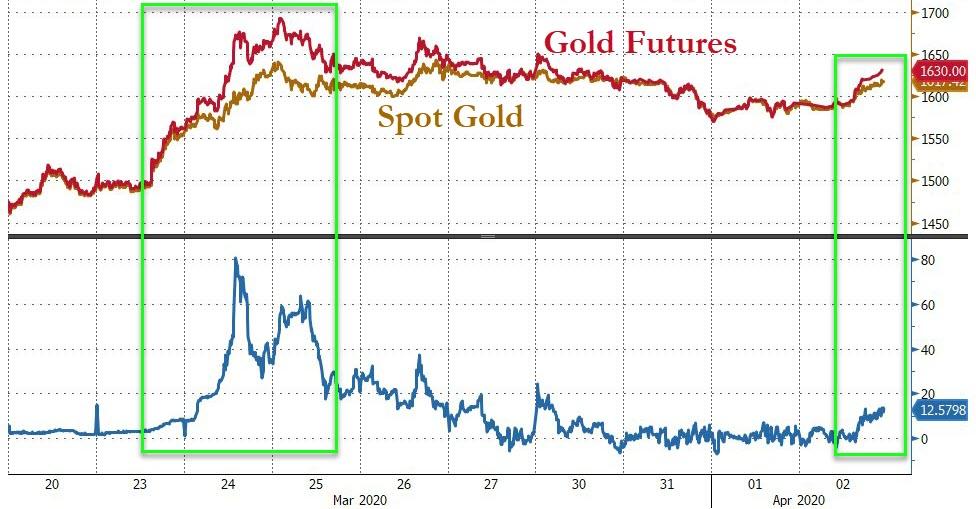Real-World Problems: The Current State Of The Gold Market In Plain Language
Written By Sam Laakso for Voima Insight,
There have been recent rumors in the gold market about the availability of physical gold. Some social media personalities and news agencies have claimed that there is a shortage of physical gold on the market. However, it is not so much about a shortage of gold, but rather a sudden demand for gold in places where it cannot be quickly supplied in the desired form.
These availability problems are largely due to what I like to call real world problems. Logistics and production processes play an important role in the journey of the gold from the mine or warehouse to the end-user.
Logistics
After the gold has been mined, the rough gold material is often transported to gold refiners for further processing. Another option is that the gold moves from warehouses around the world in various shapes and sizes to the refineries. In this case, gold is often delivered in the form of roughly 12.4-kilo bars (400 Troy ounces) or as recycling material.
Roughly, a typical gold production chain goes like this: Gold Mine or Other Warehouse – Logistics Company – Refinery – Logistics Company – Mint – Logistics Company – Bullion Dealer – Individual
As you can see from the chain, logistics companies play an important role in the flow of gold. Mostly gold moves with air cargo, and as recent news has shown, international air traffic has fallen significantly. This has caused problems in moving gold from one country to another.
At Voima, the supply chain is a bit shorter because our sourcing department obtains some of our gold directly from the refineries.
The production chain of Voima: Gold Mine or Other Warehouse – Logistics Company – Refinery – Logistics Company – Voima’s Vault Service
Production
The coronavirus has also posed challenges, for instance to Swiss refineries. Some refineries have been forced to cut production as governments have imposed bans on people’s gatherings and encourage people to work remotely. In other words, people have restrictions on movement and gathering. These restrictions affect all businesses in the area. Therefore, some Swiss gold refineries are closed, just like other Swiss industrial companies. The location and the nature of the operations determine whether or not the company allowed to carry on production.
When refineries are unable to produce their products, delivery times to the consumer are further extended. The situation in Switzerland has also been aggravated by the fact that a significant part of the workforce, at the refineries in southern Switzerland, comes from Italy, which is one of the major sufferers of the coronavirus.
Gold availability
London is the center of the world’s gold trade and most of the world’s gold is traded in 12.4-kilo bars. However, many savers prefer to buy small gold items such as coins and plates. In addition, many bullion dealers favor sales of these products, as small coins and plates have the highest profit margins.
These products are made either from mining concentrates or, for example, from larger gold bars like the 12.4-kilo bars. Often mine concentrates or larger bars have to be delivered to the refinery from another country.
The challenges brought up by the coronavirus related to the availability of gold are mainly due to the real-world problems such as logistics and production processes of gold. In other words, there is gold, but as long as the coronavirus causes problems with logistics and production, the availability of small gold bullion coins and bars may be poor.
Gold has not run out, and gold is not running out of the world, as some claim. These individuals have probably never been involved with the larger international gold market. So, it is understandable that they do not understand the life cycle of gold and the challenges of the real world.
It is good to remember one undeniable fact: new gold mined increases the total supply of gold by only 1% annually. The remaining 99% already exist, in large warehouses, jewelry, and people’s homes around the world. The laws of supply and demand also move this 99%. If gold is “not available” the current owners believe that the price of gold is too low, or the people simply do not want to exchange gold for the weakening euro or dollar.
It is reasonable to assume that once the worst peak of the panic caused by the coronavirus subsides, factories open, air traffic normalizes, and the gold market will return to normal.
Tyler Durden
Thu, 04/02/2020 – 17:15
